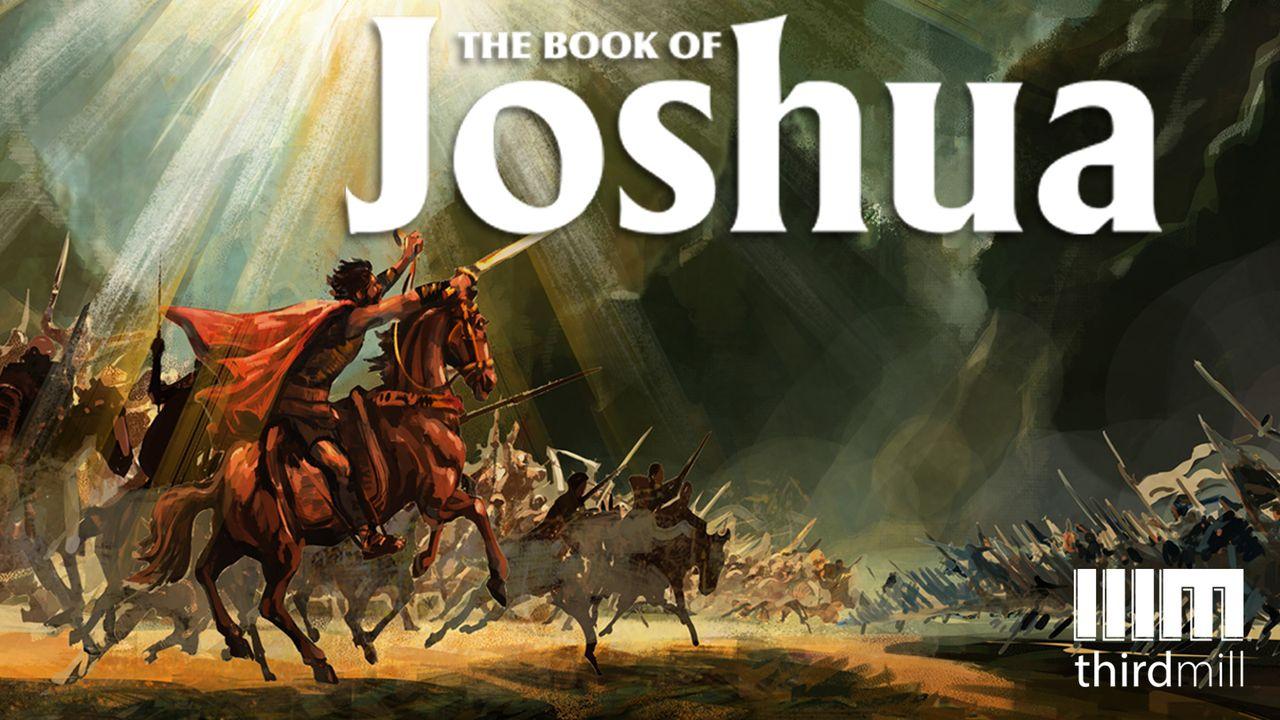The Book Of JoshuaVoorbeeld

Initial Boundaries: Joshua 13:1-15
This section of Joshua divides into two episodes. First, 13:1-7 focuses on the boundaries of Israel’s land in Cisjordan, the land of Canaan west of the Jordan River. And second, 13:8-14 gives attention to the boundaries of Israel’s land in Transjordan, the territories east of the Jordan River.
As we approach this part of Joshua, we need to keep in mind a bit of background on the boundaries of Israel’s inheritance. In Genesis 15:18-21, God promised Abraham’s descendants a land that would extend to the west from “the Wadi of Egypt.” This wadi, or “river” or “brook,” as it may be translated, was either an eastern branch of the Nile that no longer exists, or Wadi El-Arish that still exists east of the Nile today. And toward the northeast, Abraham’s land would reach as far as “the great river, the river Euphrates.” From there, Israel would spread the blessings of God to the ends of the earth. But in reality, Israel’s lands didn’t reach these boundaries until the time of David’s kingdom. In Joshua’s time, God granted Israel only a portion, a foretaste of these territories on both sides of the Jordan. But as our book indicates, settling securely in these lands was a crucial first step for Israel.
The first episode on the boundaries in Cisjordan builds on the list of territories that Joshua had conquered in chapter 12. It opens in 13:1 with the fact that Joshua was “old and advanced in years,” and that “there remain[ed] yet very much land to possess.” The land that remained was in the region of the Philistines and in the northern regions of Canaan. In 13:6, God promised, “I myself will drive [the inhabitants] out.” So, in verse 7, God commanded Joshua to go ahead and treat all of Canaan as Israel’s inheritance.
In the second episode, in 13:8-14, our author completed his sketch of Israel’s initial inheritance by describing the outer boundaries in Transjordan — the lands to the east of the Jordan. Our author began in 13:8 with the note that Moses had granted these territories as Israel’s inheritance before he died.
Israel’s initial tribal inheritances east of the Jordan extended to the south as far as Moab and to the north as far as Mount Hermon. But our author noted in 13:13 that the Israelites had not yet driven out some groups, like “the Geshurites or the Maacathites.” Still, Moses had designated the entire region as Israel’s inheritance by the time of Joshua. And to be as comprehensive as possible, our author also added a parenthetical note in 13:14. He explained that the Levites received an inheritance, but theirs was “the offerings by fire to the Lord,” rather than land.
Skrif
Aangaande hierdie leesplan

In this plan we'll learn what the book of Joshua meant for ancient Israel, and we’ll be better equipped to see how much it has to offer us in our day.
More





